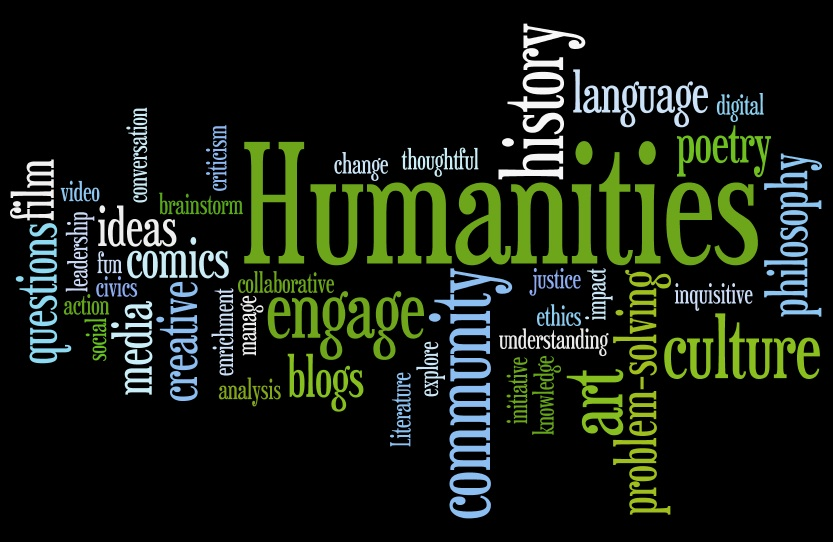The Humanities and Medicine in the Age of COVID

Molly Worthen is one of our top historians of religion and a frequent writer on the contemporary state of higher education. She has an excellent Times op-ed about how the pandemic has shown the absolute necessity of including a strong humanities component in American medical education.
There were signs of a reckoning at the very start of the pandemic. When Covid-19 hit the Northeast, the Yale School of Medicine moved classes online and pulled many students off clinical rotations. “The dean sent an email that said, go home, take this time to study,” Max Jordan Nguemeni Tiako, a Yale medical student, told me. “I thought, oh my God, I can’t imagine studying for an exam right now.” Mr. Tiako and a small number of the faculty and students worked together to create new courses that students could take instead, including an intriguing elective called “Covid-19: A History of the Present.”
The class — convened over Zoom, of course — gave the 65 students who signed up an opportunity to document and analyze their pandemic experiences. Some were helping friends and family sift through unreliable medical information; others were caring for children or volunteering in underserved communities in New Haven. But the course was also a beachhead for the medical humanities, a broad field that includes disciplines ranging from philosophy and history to visual art, creative writing and film. The medical humanities focus on a question: “What does it mean to make a healer, to train people who can attend to suffering?” Joanna Radin, a Yale historian who helped teach the new class, told me.
The course was “a pilot project to demonstrate that the humanities are an essential part of what a medical education should be — not just a luxury, but foundational,” Dr. Radin said. One student wrote her final essay on the practice of Judaism during the pandemic. Another wrote a short story about working as a contact tracer in New Haven. Some took photos or made short videos. It’s true that none of these projects saved Covid patients dying of respiratory failure.But in the long run, the pandemic may give proponents of the humanities an unexpected opening to change the way we train doctors and think about health care.
Some humanistic disciplines, like history and philosophy, have long had a foothold in medical education through the fields of social medicine, the history of medicine and biomedical ethics. Penn State’s College of Medicine established the first humanities department within a medical school in 1967. In recent decades, the institutional growth of the medical humanities has accelerated. My informal survey of North American and British higher education turned up about 50 stand-alone centers, medical school programs and departments focused on the medical humanities — and nearly 60 undergraduate programs.
Yet even as the research centers, journals, conferences, master’s programs and other marks of academic legitimacy proliferate, my conversations with humanities scholars working in medical schools suggest that the humanities remain off the beaten track, engaging a small, self-selecting group of students. “They recognize a gap in their education, and I create a safe space to wrestle with deep questions,” said Lydia Dugdale, who teaches a philosophy seminar for medical students and directs the Center for Clinical Medical Ethics in Columbia University’s department of medicine.
There is one obvious reason for this. The U.S. Medical Licensing Examination, better known as the boards, contains no humanities component (the test questions described as covering “social sciences” primarily concern bedside manner and basic ethics). The exam’s priorities are symptoms of a more deeply ingrained assumption: the notion that the humanities may be an enjoyable forum for speculation and self-expression but have little to do with the discovery of medical knowledge or the nuts and bolts of care. The prominent British medical journal The Lancet features a section called “The Art of Medicine,” focused on how medicine is “inextricably bound up with history, literature, ethics, religion and philosophy” — which the editors described, somewhat condescendingly, as “those branches of learning traditionally identified more with analysis and interpretation than with empiricism and evidence.”
This essay sums up a lot of the issues in American higher education today, as well as in American society. As fascism and the horrors of social media descend upon the nation and the world, we need the humanities more than ever. We’ve seen what the devaluing of the humanities has done in our politics over the last couple of decades. At the same time, our higher education has been completely taken over by the STEM fetish that means nothing else matters, to the point of universities offering lower tuition for those majors compared to English or History. You really see this play out in general education requirements at the undergraduate level, where arts and humanities are sacrificed again and again so that students can take more science and technology courses. And if you want to deal with a real problem there, it isn’t so much the medical schools (though there is a problem there). It’s the engineering faculty who believe their students should be taking nothing but engineering courses for four years. Meanwhile, schools around the nation are just eliminating majors that don’t lead directly to servicing American capitalism.
All this leads to a point where we have a societal disaster with professions who need to be versed in actual human relationships completely unversed in them. This is why the idea that “we need to listen to science” in dealing with the pandemic is only a partial answer to problems that actually reinforce the problems. We do need to listen to scientists, of course we do. But we also need to listen to economists and psychologists and public health experts and, yes, historians. Dealing with a global crisis is not only a question of science and medicine. It is a question of humanity with all the complexities and different ways of understanding and study that means.
